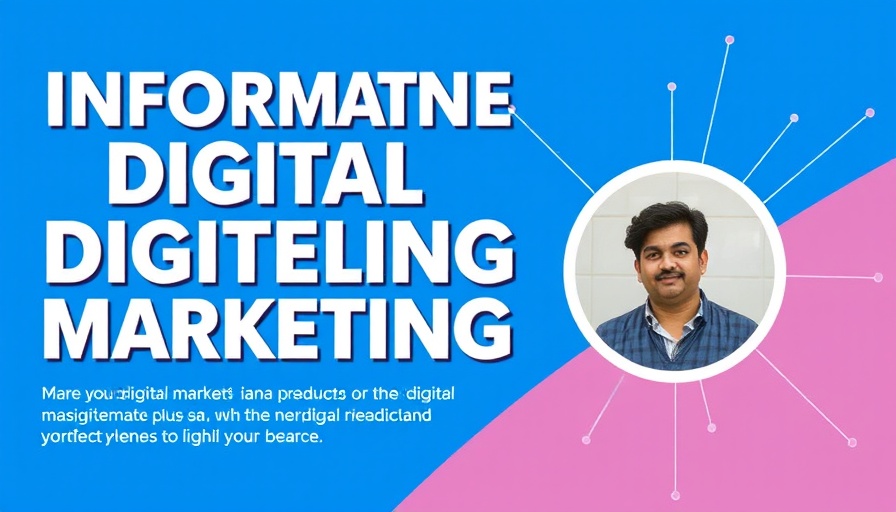
SEO: Navigating a Transformation Amidst Challenges
It's a paradox that many marketers struggle to grasp: While SEO seems more challenging than ever, it remains one of the most effective marketing channels today. Automated tools and AI have changed the game, but they come with a unique set of challenges. In 2023, many businesses report a worrying decline in organic traffic—some as much as 20-40%. How should marketers adapt in an environment where AI-generated content floods search engine results and big brands like Reddit dominate clicks?
Understanding the Shift in SEO Dynamics
The landscape of Search Engine Optimization has evolved dramatically with the rise of AI technology. Algorithms such as Google's RankBrain illustrate this shift by enhancing how search engines understand user intent and deliver relevant results. This evolution signifies a more personalized search experience but also opens doors for more competition.
As content creation has become cheaper and more accessible, marketers are faced with an oversupply of information that often lacks quality. While AI offers projection tools and automation strategies, it can also result in diluted attention and engagement from users, ultimately making it harder to convert.
Emphasizing Quality Over Quantity
To stand out in this crowded space, content quality must reign supreme. Businesses should focus on creating valuable, in-depth content rather than churning out SEO blog posts that contribute little to the conversation. Metrics should shift from mere click-through rates to engagement and conversion rates, pushing marketers to invest in high-quality materials that can foster deeper connections with their target audience.
The Role of AI in Shaping SEO
Ironically, while AI poses a threat through various automated tools, it can also be harnessed to improve SEO practices. Predictive SEO techniques can help businesses analyze patterns and trends to create content that addresses emerging queries. In fact, AI can significantly enhance keyword research efficiency and optimize on-page elements like meta tags and headings, ensuring alignment with user intent.
As AI transforms SEO, businesses should consider integrating AI tools like Jasper or Surfer to enhance their efforts in content creation and optimization. However, it's crucial to remain cautious about biases within AI algorithms and the quality of the data being processed.
Preparing for Future Trends
Marketers must remain agile as new formats of search—especially voice search and visual search—gain traction. As highlighted in industry discussions, the growing prevalence of voice-activated assistants demands a shift toward natural language processing, leading to new strategies for optimizing content for voice queries.
Ultimately, the key to thriving in the SEO landscape is adaptability. As AI continues to redefine search dynamics, embracing technological advancements while also nurturing the human aspects of marketing will be essential. This integrated approach will allow businesses not only to survive but to thrive in a competitive digital environment.
Final Thoughts on SEO in a Digital Age
SEO may face significant challenges today but remains a cornerstone of effective digital marketing. As businesses navigate this tumultuous landscape, it's imperative to balance innovation with quality. The future is uncertain, but prioritizing valuable content and harnessing AI wisely can help businesses carve out their niche, ensuring they remain relevant and influential.
As you consider your own SEO strategies, remember that the digital world is audibly shifting under the weight of AI. Take proactive steps today to ensure your content stands out tomorrow. Embrace AI technology, but never lose sight of the human connection that ultimately drives engagement and conversion.
 Add Row
Add Row  Add
Add 






Write A Comment